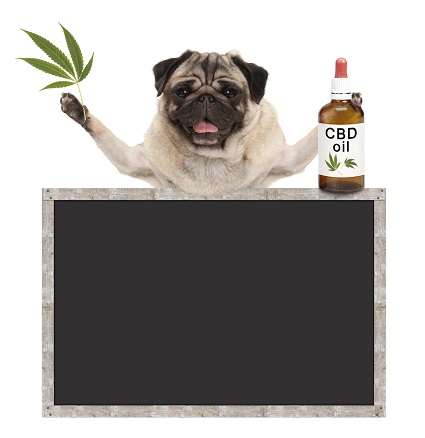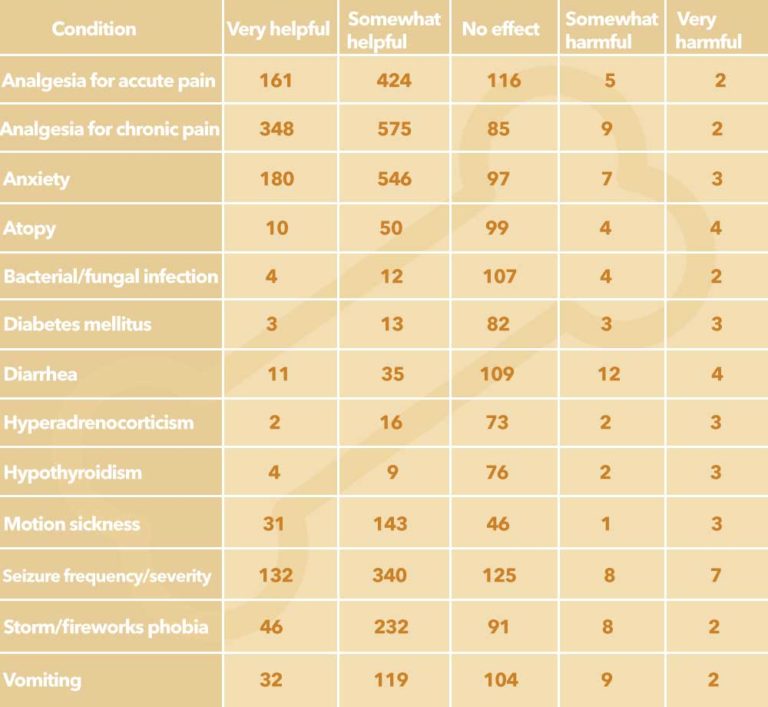
The CBD rush is leaving marks everywhere – even in the world of our pets.
Our furry friends have recently experienced some of this cannabinoid’s benefits in the form of tasty dog treats. However, pet parents still have questions and concerns.
Things get even more complicated if we consider that veterinarians are prohibited by law to prescribe or recommend CBD, making it impossible to have an honest conversation with them.
Meanwhile, the market is expanding, dog treats are at our fingertips, along with plenty of online information and misinformation.
Here’s our guide through the jungle.
The health benefits of CBD treats: do they actually do something?
As we elaborated in an article on CBD oil for dogs, dogs can benefit from using cannabidiol just as much as humans. Perhaps even more because their endocannabinoid system is more complex.
But before we dive into analyzing specific therapeutic values of CBD treats, we need to discuss their manufacturing process, and the related concern about the amounts of CBD present in this product.
The need arises even more from the fact that the FDA found that many brands are making false claims regarding the CBD level in their products.
Another thing to keep in mind is that dog treats are baked goods, which implies a possibility that some amount of CBD can be lost in the manufacturing process (if it’s baked at the temperature above 320°F).
In practice, it means that you should trust only the producers that test their products after the preparation process.
To sum it up, the real answer is that your pet can benefit from eating CBD-infused dog treats, under the condition that the biscuit actually contains this precious cannabidiol.
CBD oil vs. CBD-infused dog treats
Much has been said about the advantages of CBD oil administration in dogs: it allows more precise dosing, avoids the first-pass effect, and decreases the risk of reduced bioavailability.
Yes, but sometimes your canine friend just won’t collaborate, which makes the use of a dropper a mission impossible.
That’s why so many people choose treats: it’s a great way of establishing a bond with your pup, triggering a positive behavior, and creating a relaxed environment while administering CBD.
In other words, dog treats are a much more suitable solution on a psychological level, especially if you’re coping with dog anxiety or aggression.
Update on animal (dog) research and the related therapeutic value of CBD
Until recently, the evidence of CBD therapeutic value in dogs was based mainly on anecdotal claims. And there were a lot of them.
According to a 2019 study that anonymously surveyed the U.S. veterinarians, pet parents used CBD to treat a wide range of health issues in their dogs.
The following table shows the perceived reaction to the effect of CBD on common dog issues.

Information source: ncbi.nlm.nih.gov
Because CBD has no intoxicant properties, owners used it to alleviate the dog’s symptoms related to anxiety, chronic pain, epilepsy, and even cancer.
The scientific research on pets is still scarce, although the results from preliminary studies sound promising.
But things are starting to change. In 2018 and 2019, more than several studies were published that explored the possible health benefits of CBD in canine patients.
Of course, this is still insufficient to draw generalized conclusions, but it’s better than being left in the dark.
A few studies that exploited the pharmacokinetics of CBD (the way it moves through an organism) in dogs seem to have reached similar conclusions:
Although we have demonstrated that CBD is absorbed orally, clinical trials are required to investigate its safety profile, to study its effectiveness in treating specific diseases, and to establish doses that provide therapeutic effects.
As for particular medical conditions, the contemporary studies have confirmed that CBD can “significantly decrease” the seizure frequency in dogs with intractable idiopathic epilepsy, as well as decrease pain in osteoarthritic dogs.
As we wait for more scientific analysis on the possible therapeutic value of CBD, the only sound conclusion at the moment would be that recent scientific results are encouraging, although not definite.
Are CBD dog treats safe?
It might be a relief to discover that the mentioned studies didn’t observe any significant side effects of administering CBD to dogs. Except for occasional reports of sedation, it seems that canine patients had no problems during experimental therapy.
Recent statistical analysis of an anonymous survey showed that veterinarians have reached similar conclusions from their practice.
They reported very few cases of anorexia, bradycardia, anxiety, polyphagia, vomiting and a few more conditions, with sedation being the most commonly reported side-effect.
But even in the case of sedation, a much larger percentage of people reported that it never happened to their dog.
There are limitations, though: most of the studies performed a 2-week regiment, and used average doses. The question of long-term effects is still vague, as well as if higher doses would provide more therapeutic value.
In general, CBD is not toxic to dogs. Treats that contain only this cannabinoid won’t hurt your pupster.
However, THC poisoning in dogs isn’t a rare phenomenon, and could potentially be life-threatening. Dogs react to this intoxicating compound of cannabis more intensely than humans do, without experiencing our euphoric sentiments.
In addition, cannabidiol can interact with other medications and cause serious complications. You should never coadminister it with other drugs at your own risk.
That’s why we can answer this question only by modifying it with a precondition: yes, CBD treats are safe, providing that they don’t contain THC none whatsoever, and are not taken with any other medications.
How to consult a veterinarian
We intentionally excluded this advice from the rest of the text because it’s a matter that deserves thorough attention.
Naturally, everything we said so far is based on deep research, but it’s no substitute for an individual consultation with your veterinarian. He is the only person that can monitor your furry friend’s condition, and make specific therapeutic recommendations.
There’s a draw-back, though: veterinarians are not allowed to prescribe CBD because it’s illegal. The state laws that legalize medicinal marijuana do not apply to animal care.
It’s probably the reason why the majority of them declared to be reluctant to initiate a conversation on CBD with their clients.
That’s why you need to take the initiative and ask for a specific consultation. Sometimes even read between the lines.
The other option is to turn to a holistic veterinarian. They are also cautious of not making specific recommendations but are generally more willing to share information on CBD use in pets.
Dosage
As you may presume, there are no official CBD dosage guidelines for dogs. What’s more, the specific doses depend on your dog’s weight and health condition.
Naturally, the best idea is to consult a veterinarian.
A general rule of thumb is to follow the same anecdotal instruction that applies to humans: start low and go slow.
If you shop the dog treats from a reputable brand that you trust, follow their instructions closely.
Otherwise, you must do the math on your own.
To begin with, introduce CBD treats in a dosage of 0.05mg x lb twice a day. Check the treat’s labeling for information on precise CBD levels. If necessary, cut the biscuit in half.
Don’t increase the dosage for some time (5-7 days). Monitor your pet to see if there’s a therapeutic relief, or possibly some unwanted reactions (dry mouth, drowsiness, lightheadedness).
If you feel that your dog needs a higher dosage, increase it to 0.125 mg x lb (twice daily). Again, follow your pet’s condition closely.
The high dosage is 0.25 mg x lb – twice a day and should be given only when you are certain that it will alleviate the symptoms your friend is having.
How long do CBD treats take to kick in?
Just how long will it take to see a noticeable result of a CBD depends on many factors.
Because of the first-pass metabolism, a treat can take anywhere between 45-90 minutes to be fully metabolized. Take note that it’s not a good idea to mix it with other food, as this can prolong the process.
After the CBD from a dog treat has been released, you should see immediate results for acute conditions such as situational anxiety (caused by loud noises, fireworks, thunderstorms).
For more chronic issues, wait 2 weeks to see if there’s any improvement.
Buying and storing guide – a quick checklist
Because there are so many things to keep in mind in order to keep your pooch safe and sound, we’ve created this quick checklist, just so you don’t forget something:
- Always purchase dog treats from a reputable brand.
- Look for lab verification results (COA) on the product’s labeling, or contact the seller to demand the certificate
- Products that claim to follow Good Manufacturing Practices and have a seal from the National Animal Supplement Council are usually trustworthy
- Make sure that treats don’t contain any THC
- Make sure that treats don’t contain additives
- Store them in a cool dark place, away from your pets
- Consult a veterinarian you trust, especially if your dog is on any other medications
- Start with the lowest dose
Final thoughts on CBD treats
Whether your furry family member is a healthy pup that suffers from acute anxiety or pain, or it suffers from a serious illness, searching for alternatives might be tempting. And it usually provides relief, as many of the pet parents claim.
Be cautious, though, and do your research properly before you make any decisions regarding your dog’s health.
Of course, do let us know how it turned out for you and your pupster.
 Investment value finders Investment value finders
Investment value finders Investment value finders



